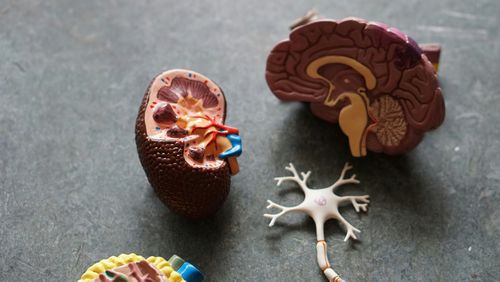Cocaine's Alchemy on the Brain Unveiled
Apr 29, 2024 · 2 mins read
0
Share

Cocaine rewires the brain's reward system, hijacking pleasure points and resculpting them into conduits of dependency.
Save
Share
The substance triggers a deluge of dopamine, the 'feel-good' neurotransmitter, plunging the brain's chemistry into a frenetic dance.
Save
Share
In time, the brain's natural ability to generate happiness without cocaine can atrophy, like a muscle unused and weakened.
Save
Share
The drug not only alters neurotransmitters but also affects blood flow to the brain, laying the groundwork for long-term damage.
Save
Share
Surprisingly, cocaine can cause the brain to cannibalize itself, a process termed autophagy, normally a cellular housekeeping routine.
Save
Share
Chronic use blurs the line between pleasure and pain, as the brain's circuitry becomes increasingly distorted and desensitized.
Save
Share
Cocaine abuse is not merely a personal failing; it is a complex brain disorder that dismantles one's command over choice.
Save
Share
Studies using brain imaging reveal that cocaine can cause the prefrontal cortex to shrink, warping judgement and decision-making.
Save
Share
A recovering cocaine user's brain is akin to a city rebuilding after an earthquake—neural pathways reconstruct slowly and painstakingly.
Save
Share
Cocaine's tale in the brain is not just of destruction, but a warning of the fragile architecture of human happiness and desire.
Save
Share
0